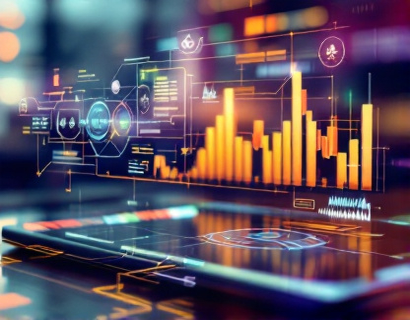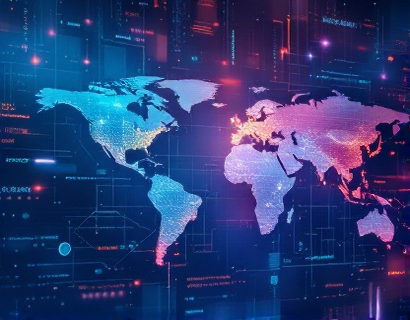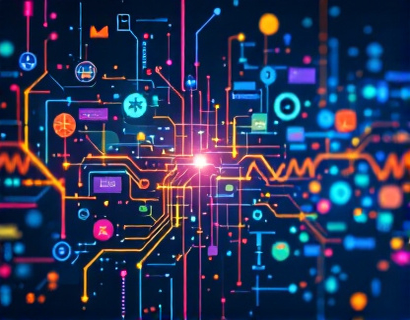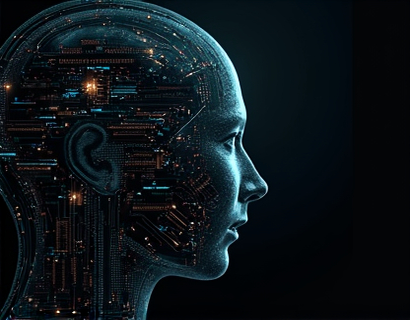Transforming Digital Engagement: The Synergy of Crypto and AI
The intersection of cryptocurrency and artificial intelligence (AI) is ushering in a new era of digital transformation. This synergy is not just about combining two advanced technologies but about creating a paradigm shift in how we interact with digital platforms and services. The integration of crypto and AI is redefining user experiences, enhancing security, and driving innovation across various sectors. This article explores the latest advancements and insights into how these technologies are reshaping the digital landscape.
Enhanced Security Through Cryptographic Techniques
One of the most significant contributions of cryptocurrency to the tech sector is its emphasis on security. Cryptographic techniques, such as public-key cryptography and hash functions, ensure that data is secure and transactions are tamper-proof. AI enhances this security by detecting and mitigating threats in real-time. Machine learning algorithms can analyze patterns and identify anomalies that traditional security systems might miss. This combination creates a robust defense mechanism against cyber threats, making digital interactions safer and more reliable.
For instance, AI-driven security systems can monitor network traffic and user behavior to detect suspicious activities. By integrating blockchain's immutable ledger with AI's predictive analytics, platforms can achieve a higher level of security. This is particularly crucial in industries handling sensitive data, such as finance and healthcare, where the stakes are high and the need for security is paramount.
Personalized User Experiences Through AI
AI's ability to process and analyze vast amounts of data makes it an invaluable tool for personalizing user experiences. In the context of cryptocurrency and digital services, AI can tailor recommendations, content, and interactions based on individual preferences and behaviors. This level of personalization enhances user engagement and satisfaction, leading to increased adoption and loyalty.
For example, a digital wallet app can use AI to learn a user's spending habits and suggest optimal times for transactions to minimize fees or maximize rewards. Similarly, a cryptocurrency exchange can leverage AI to provide users with customized portfolio management advice, taking into account market trends and personal risk tolerance. These personalized experiences not only improve user satisfaction but also drive higher engagement and retention rates.
Smart Contracts and Automated Processes
Smart contracts, a key feature of blockchain technology, are revolutionizing the way transactions and agreements are executed. When combined with AI, smart contracts can become even more powerful and efficient. AI can automate the execution of smart contracts based on predefined conditions and real-time data analysis, reducing the need for intermediaries and lowering transaction costs.
In the realm of supply chain management, for instance, AI can monitor and analyze data from various sources to ensure compliance and efficiency. Smart contracts can then automatically trigger actions such as payments or inventory updates when certain conditions are met. This seamless integration of AI and blockchain not only streamlines processes but also enhances transparency and trust among all parties involved.
Decentralized Finance (DeFi) and AI-Driven Investments
Decentralized Finance (DeFi) is a rapidly growing sector that leverages blockchain technology to create financial systems without traditional intermediaries. AI plays a crucial role in DeFi by providing advanced analytics and predictive models to help users make informed investment decisions. AI algorithms can analyze market data, identify trends, and predict price movements, enabling users to optimize their portfolios and minimize risks.
Moreover, AI can enhance the liquidity and efficiency of DeFi platforms. By automating trading strategies and managing risk, AI ensures that transactions are executed smoothly and quickly. This is particularly beneficial in the volatile cryptocurrency market, where timing and precision are critical. The combination of DeFi and AI not only democratizes access to financial services but also opens up new opportunities for innovation and growth.
Enhancing Connectivity and Interoperability
One of the challenges in the crypto ecosystem is the lack of interoperability between different blockchain platforms. AI can help bridge this gap by developing intelligent protocols that enable seamless communication and data exchange between disparate systems. This interoperability is essential for creating a cohesive and integrated digital ecosystem where users can seamlessly interact with various services and applications.
For example, AI can facilitate the development of cross-chain solutions that allow assets and data to move freely between different blockchains. This not only enhances user experience but also fosters innovation by enabling developers to build more complex and versatile applications. The ability to connect and integrate different blockchain networks is a significant step towards a more unified and efficient digital world.
User-Centric Design and Accessibility
The integration of AI in crypto and digital services also focuses on making these technologies more accessible and user-friendly. AI-driven interfaces can adapt to individual user preferences and abilities, ensuring that the digital experience is intuitive and inclusive. For instance, voice-activated assistants and natural language processing (NLP) can make interacting with crypto applications more straightforward for users who may not be tech-savvy.
Moreover, AI can help in designing user interfaces that are optimized for various devices and screen sizes, ensuring a consistent and high-quality experience across platforms. This user-centric approach not only broadens the adoption of crypto and AI technologies but also empowers a more diverse range of users to participate in the digital economy.
Challenges and Considerations
While the potential of combining crypto and AI is immense, there are several challenges and considerations that need to be addressed. One of the primary concerns is regulatory compliance. The crypto space is still largely unregulated, and the integration of AI adds another layer of complexity. Ensuring that these technologies comply with existing laws and regulations is crucial to avoid legal issues and build trust with users.
Another challenge is the ethical use of AI. As AI systems become more advanced, issues related to bias, transparency, and accountability come to the forefront. It is essential to develop AI algorithms that are fair, transparent, and accountable to prevent misuse and ensure that the benefits of these technologies are equitably distributed.
Future Prospects and Innovations
Looking ahead, the convergence of crypto and AI holds tremendous potential for further innovation. One area of interest is the development of AI-powered decentralized autonomous organizations (DAOs). These organizations can leverage AI to make collective decision-making more efficient and democratic, reducing the need for centralized control and enhancing transparency.
Additionally, the integration of AI with emerging technologies such as the Internet of Things (IoT) and 5G networks can create a more interconnected and intelligent digital ecosystem. AI can process the vast amounts of data generated by IoT devices, enabling real-time insights and automated responses. This synergy can lead to smarter cities, more efficient industries, and enhanced consumer experiences.
In conclusion, the fusion of cryptocurrency and artificial intelligence is transforming digital engagement in profound ways. By enhancing security, personalizing user experiences, automating processes, and fostering interoperability, these technologies are driving growth and innovation across the tech sector. As the landscape continues to evolve, staying informed and adaptable will be key to harnessing the full potential of this exciting synergy.










































